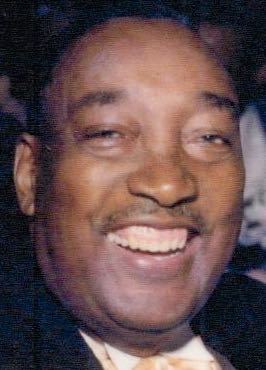My Father’s Story


Willie McKenzie’s Conservation Corps Story
by: Tyronne E. Carter
Willie was born in Guyton, Georgia, in 1921 but grew up in Sarasota, Florida. In the area where he was born, there were only two paved roads and few people even had shoes. Like many boys of his generation who were the oldest sons, Willie acted as a surrogate father and was expected to help out his family financially. As a result, he only attended school until the fifth grade. He wanted to go further in school but instead worked so that his younger brothers and sisters could attend college.
His first job was working on a celery farm in Sarasota, Florida, starting at age 11. Willie’s father had offered his three oldest sons to work in the fields at the celery farm. The work was very hard, since Willie worked six days a week, sunrise to sunset, and was paid only ten cents an hour (or$16 a month). His father would deny him even 25 cents for a movie, so Willie would refuse to work and sometimes run away from home due to the perceived unfairness of his situation.
When Willie was 17, an opportunity came his way to work in a [Georgia] Civilian Conservation Corps camp. He was paid $30 a month to help build roads in the area near [Savannah], and was grateful for the opportunity to improve his earning ability. There were not many opportunities for a young black man at that time in our country’s history, especially after the Great Depression. Following his positive experience with the Conservation Corps, Willie joined the U.S. Army and eventually became a T-5 Corporal.
With each step, Willie was able to increase his earning ability—including running a whiskey still while in the Army!
Like many other African Americans, in the early 1950s Willie migrated north to Philadelphia in search of better working and living conditions. Without a formal education, though, his job prospects were limited to manual labor: cement mixer, longshoreman, general laborer. Some of the jobs he performed were downright dangerous, back-breaking and unpleasant, such as loading heavy tubs of iron ore onto ships. One job at a beef processing plant involved loading barrels of beef on a truck and cleaning livestock manure out of pens. All day he would go from cold room to outdoors and back again. His doctor advised him to quit the job, as it was having an adverse impact on his health. He did, and in 1957 took a civil service test to work at the Post Office. He scored 97 out of 100. Willie worked at the post office until he retired in 1980, and often said this was his favorite job next to the Conservation Corps.
Willie met his wife and started his own family in Philadelphia, and both parents passed on to their seven children the assumption that with a better education they could aspire to a better life. One of Willie’s children, Dr. Tyronne E. Carter, eventually relocated to Minnesota and is currently involved in providing STEAM programming to under-served student populations via a nonprofit corporation, America’s Urban Elementary STEM. He is also the author of a semi-autobiographical children’s book, “Tyronne Carter Kid Scientist,” that is carried by Hennepin County Library. The positive experience that the Conservation Corps provided to Willie McKenzie, an experience he often spoke of fondly later in life, thus sparked a chain of upward mobility and community service for his family.
© 2017 Tyronne E. Carter